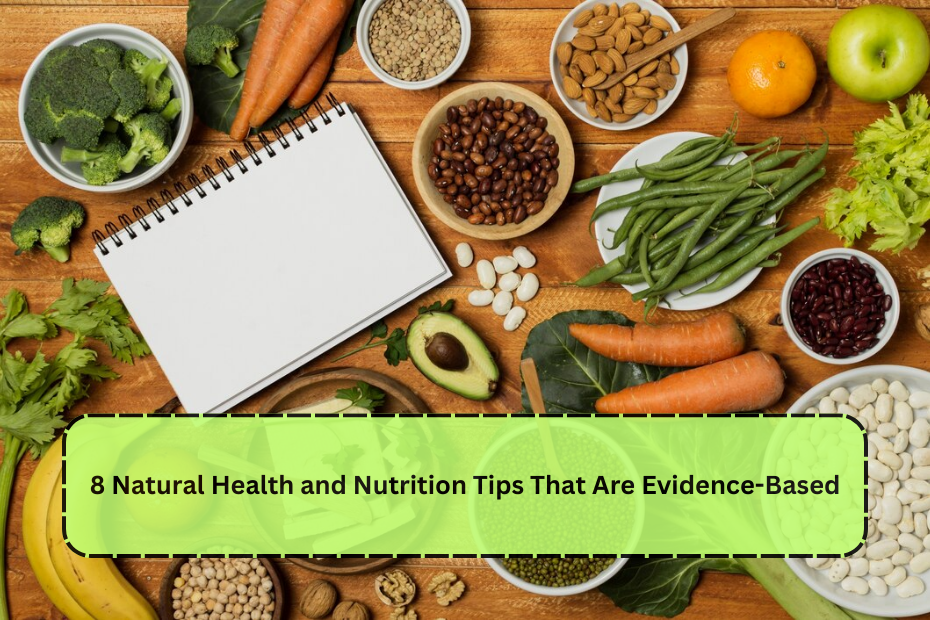It can be hard to figure out what health tips to follow because even experts may have different ideas. This lack of clarity can make it harder to improve one’s health. Despite the disagreement, though, there are a number of health tips that have strong support from scientific study. Here are 27 health and diet tips that have been backed up by research to help you live a better life. These suggestions cover a lot of different areas of health, like food, exercise, sleep, and mental health. These tips cover important parts of a healthy lifestyle, like drinking enough water and getting enough sleep, eating whole foods, limiting extra sugars, and getting regular exercise. They also stress how important it is to deal with stress, make friends, and take preventative health care steps like getting regular checkups and vaccines. You can make choices that are good for your health and energy by adding these practices that have been shown to work to your daily life.
1 Limit sugary drinks
In the United States, most of the extra sugar we eat comes from drinks like soda, fruit juice, and sweetened tea. According to research, drinking these drinks can make people more likely to get heart disease and type 2 diabetes, even if they are not overweight. In other words, drinking sugary drinks on a daily basis can still hurt your health even if you stay at a healthy weight. Also, these drinks are especially dangerous for kids because they can make them fat and cause health problems that adults usually have, like type 2 diabetes, high blood pressure, and non-alcoholic fatty liver disease. Hence, cutting down on or completely giving up sugary drinks is important for staying healthy, especially for kids whose bodies are still growing and may be more susceptible to the negative effects of eating too much sugar. Choosing healthy drinks like water, teas without added sugar, or fruit-infused water can make a big difference in your health and well-being.
2 Eat nuts and seeds
Some people think nuts and seeds are unhealthy because they are high in fat, but they are actually very healthy. There is a lot of protein, fiber, and important vitamins and minerals in them. Adding nuts to your diet may even help you lose weight and lower your risk of getting heart disease and type 2 diabetes. Nuts may be part of a healthy diet and may help with general health, according to research. One big observational study found that not eating enough nuts and seeds might raise the risk of dying from heart disease, stroke, or type 2 diabetes. So, eating a range of nuts and seeds can be good for your health in many ways, and you shouldn’t avoid them just because they are high in fat. They should be eaten as part of a healthy, balanced diet for the best health and well-being.
3 Avoid ultra-processed foods
Ultra-processed foods (UPFs) are foods that have been changed a lot from how they were originally made. A lot of the time, they have extra things in them like sugar, refined oil, salt, preservatives, fake sweeteners, flavors, and colors. These additions make UPFs very tasty, which means it’s easy to eat too many of them. When UPFs are eaten, they can turn on parts of the brain that are linked to rewards, which can make people eat too many calories and gain weight. Eating a lot of ultra-processed foods has been linked to obesity, type 2 diabetes, heart disease, and other long-term health problems. Because of this, it’s best to limit your intake of UPFs and focus on whole, lightly processed foods to stay healthy and happy. People can improve their long-term health and lower their chance of getting many diseases by choosing natural, nutrient-dense foods over ultra-processed ones.
4 Don’t fear coffee
Even though it’s controversial, coffee is good for you in many ways. Coffee is full of antioxidants, and studies show that drinking it regularly may lower the chance of getting type 2 diabetes, Parkinson’s, Alzheimer’s, and other diseases. For the most health benefits, experts say to drink 3–4 cups per day. But women who are pregnant should be careful and limit or avoid coffee because it may be linked to low birth weight. Coffee can be good for you, but you should only drink it in small amounts. If you drink too much caffeine, it can cause problems like sleeplessness and heart palpitations. To drink coffee safely and healthily, don’t go over 4 cups a day and don’t add things like sweetened milk that are high in calories and sugar. If you drink coffee in balance and don’t add too many extras to it, you can get the health benefits while lowering the risks.
5 Eat fatty fish
Fish, especially fatty fish like salmon, is a great way to get energy and healthy fats. These fish are full of omega-3 fatty acids, which are good for your health in many ways and can help reduce inflammation. Some diseases, like heart disease, dementia, and inflammatory bowel disease, are less likely to happen to people who eat fish on a daily basis, according to research. Eating fish can give you important nutrients that are good for your health and well-being as a whole. Adding fish to your meals, whether you grill, bake, or broil it, is a tasty way to get more omega-3s and other important nutrients. As a healthy addition to a balanced diet, fish stands out because it is full of nutrients.
6 Get enough sleep
It’s very important for your health and well-being to get enough good sleep. If you don’t get enough rest, it can affect many parts of your mind and body. Not getting enough sleep can make your body less sensitive to insulin, mess up your hunger hormones, and make you less mentally and physically sharp. Notably, not getting enough sleep is highly linked to gaining weight and becoming obese. People who don’t get enough sleep often choose bad foods that are high in calories, fat, and sugar. Over time, this can make you add weight that you don’t want. So, making good sleep habits a priority is important for living a healthy life. Setting up a relaxing bedtime habit, making your bedroom comfortable, and learning ways to deal with stress can help you get good sleep every night. Getting enough good sleep is important for your health and can help you do better in your daily life.
7 Feed your gut bacteria
The gut microbiota, which is made up of bacteria, needs to stay in a healthy balance for general health. When these bacteria are upset, it can cause a number of long-term illnesses, such as digestive problems and fat. You can improve the health of your gut by adding certain foods and habits to your diet. Probiotics are good for your gut and can be found in lots of fermented foods like yogurt and pickles. Taking probiotic pills as directed by a medical professional can also help restore the balance of bacteria in the gut. Eating enough fiber is another important thing you can do to keep your gut healthy. Fiber feeds the good bugs in your gut by acting as a prebiotic. By making these changes to your food, you can improve the health of your gut and lower your risk of getting health problems that are linked to it. To support your gut health and well-being as a whole, make sure you eat a varied, well-balanced diet that is full of nutrients.
8 Stay hydrated
A lot of people forget how important it is to stay hydrated when they’re trying to stay healthy. Getting enough water helps your body work properly and keeps your blood flow at a healthy level. Water is the best way to stay refreshed because it doesn’t have any added sugar, calories, or flavors. There is no set amount of water that everyone needs to drink every day, but the goal is to drink enough to quench your thirst. To keep from getting dehydrated, pay attention to your body’s cues and drink water often throughout the day. Your water needs may change depending on things like the weather, how active you are, and your own health, so it’s important to make changes as needed. You can improve your health and well-being by making water your main drink and making it a habit to stay hydrated. Keep a water bottle with you at all times and drink small amounts of water often to stay hydrated.
The bottom line
It doesn’t have to be hard to improve your general health. You can make big improvements to your health by making small changes to what you eat and how you live.
It’s important to remember, though, that living a good life isn’t just about what you eat. Getting enough exercise, sleep, and healthy relationships with other people are also very important for your health.
A big change in your health can be made by incorporating tips based on evidence into your daily life. Start by making easy changes, like eating more fruits and veggies, drinking enough water, and making regular exercise a priority. Besides that, make sure you get enough sleep every night and spend time with family and friends.
You can be as healthy and energetic as possible by focusing on holistic wellness and making good choices in many areas of your life. Over time, making small changes that you can keep up can have a big effect on your health and quality of life.
FAQS
1. What are some evidence-based natural health and nutrition tips?
Evidence-based advice include eating a balanced diet of fruits, vegetables, whole grains, and lean proteins, staying hydrated, exercising regularly, getting enough sleep, managing stress, and avoiding alcohol and tobacco.
2. How can I incorporate more fruits and vegetables into my diet?
Adding fruits and veggies to every meal and snack is a good way to eat more of them. Sliced fruits can be added to yogurt or cereal for breakfast, veggies can be added to sandwiches and salads, and you can eat fruit or vegetable-based snacks all day long.
3. Is regular physical activity important for overall health?
Yes, being active every day is very important for your health. It keeps you at a healthy weight, makes your heart healthier, builds stronger bones and muscles, lifts your mood, and lowers your risk of getting chronic diseases like heart disease, diabetes, and some cancers.
4. How much water should I drink to stay hydrated?
The amount of water you need to drink varies on your age, gender, level of activity, and the weather. Aim to drink at least eight glasses of water every day as a general rule, but change how much you drink based on your needs and when you feel thirsty.
| Home | Click Here |




